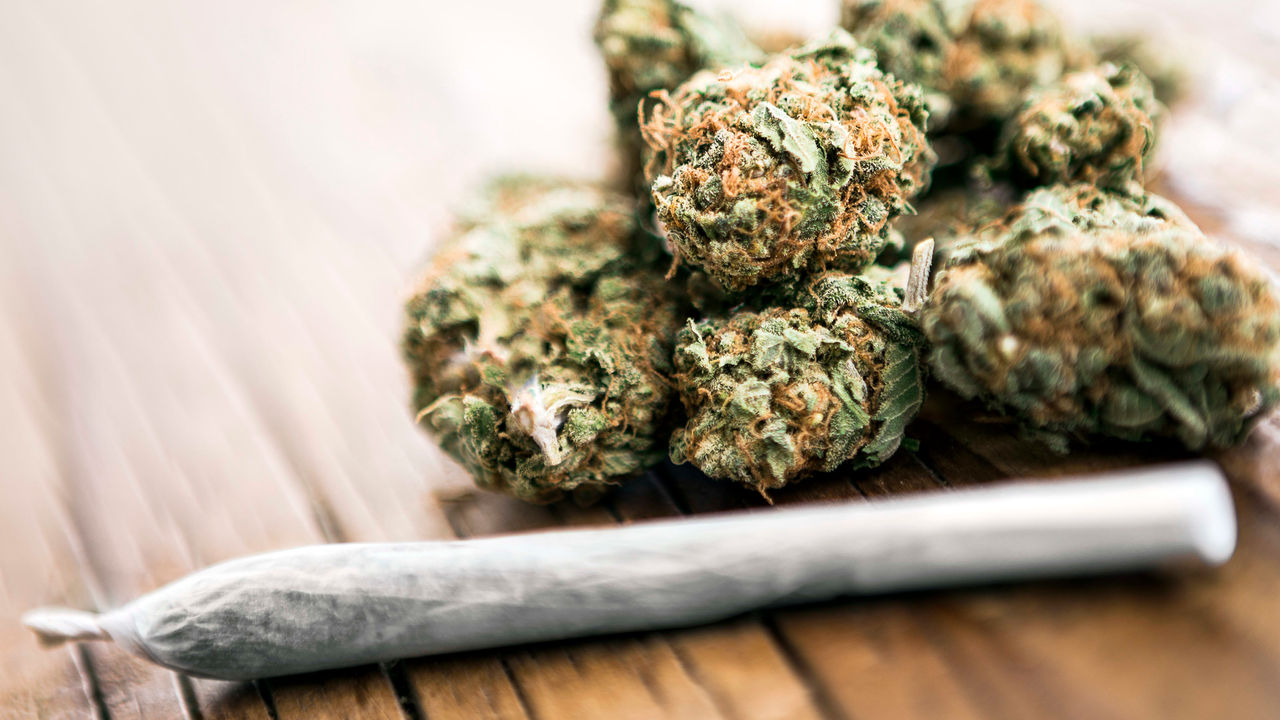Tesla CEO Elon Musk appeared to smoke weed and drink whiskey on a recent podcast hosted in California. Although recreational marijuana use is permitted in the state, it remains illegal under federal law and employers can still discipline workers for being high. So did Musk violate company policy by sharing a joint on the show?
SHRM Online has collected the following articles on the topic from its archives and other news outlets.
Safety and Health Rules
Tesla's Code of Business Conduct and Ethics states that employees should report to work free from the influence of illegal drugs or alcohol. "The use of illegal drugs in the workplace will not be tolerated," according to the policy. It could be argued that Musk was representing Tesla on the show and therefore was under the influence of drugs and alcohol on the job. However, Musk said that the company's policy allows for employees to have a limited amount of THC in their system during work hours, if the level is low enough not to pose a safety threat. THC stands for tetrahydrocannabinol—the psychoactive component in marijuana.
(CNBC)
Consistent Treatment?
A former Tesla employee, Crystal Guardado, was fired for testing positive for marijuana in 2017 and called Musk's behavior "a slap in the face." Guardado said she uses doctor-recommended drops that contain THC. She called the company's drug policy "vague" and claimed it was used to "fire people that are a threat to [Musk]." She is a union supporter and said she complained about safety issues prior to being fired. Tesla, however, claims that it hasn't fired anyone for supporting union organizing efforts.
Employers Have Some Discretion
Despite growing social acceptance of marijuana consumption and California's legalization of the drug for medical and recreational purposes, employers in the state don't have to tolerate its use. Employees can be fired even for off-duty use. In a 2008 decision—Ross vs. RagingWire Telecommunications—the California Supreme Court ruled that businesses can decide whether to discipline or fire marijuana users. One attorney argued that businesses can have different rules for executives and workers in other positions. Another attorney said that strict rules against off-duty marijuana use are usually reserved for safety-sensitive roles and that many businesses have a "don't ask, don't tell" policy about what employees do in their free time as long as they are meeting performance and safety standards.
[SHRM members-only online discussion platform: SHRM Connect]
More Turmoil
Shortly after the podcast incident, Tesla's head of HR resigned, the chief accounting officer also quit after less than a month on the job and stocks fell. In addition, Musk recently caused controversy when he tweeted about potentially taking Tesla private.
The State of Marijuana Laws
Marijuana laws are creating compliance challenges for employers around the country. About 30 states and Washington, D.C., have legalized medical marijuana use, and nine of those states have also approved recreational use. Although users in California don't have workplace protections, some states prohibit discrimination based on medical-marijuana cardholder status. Still, no state law provides employment protections for recreational use.
An organization run by AI is not a futuristic concept. Such technology is already a part of many workplaces and will continue to shape the labor market and HR. Here's how employers and employees can successfully manage generative AI and other AI-powered systems.




